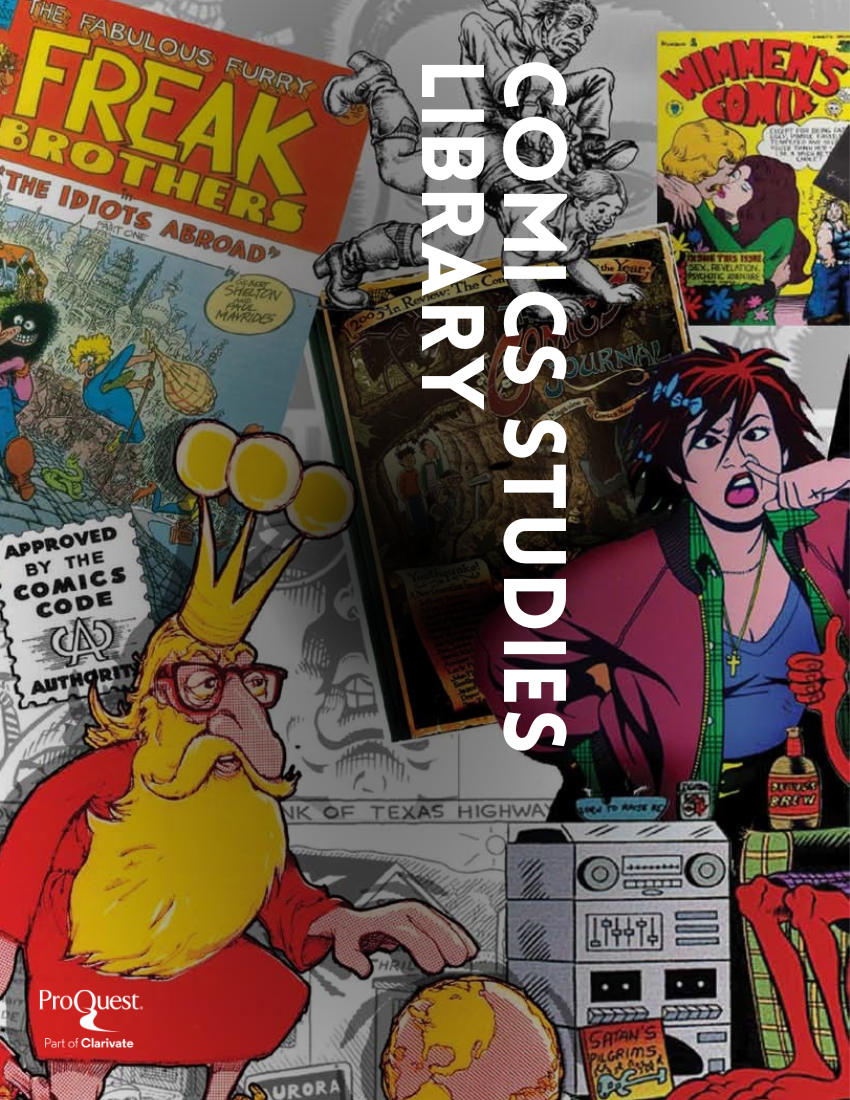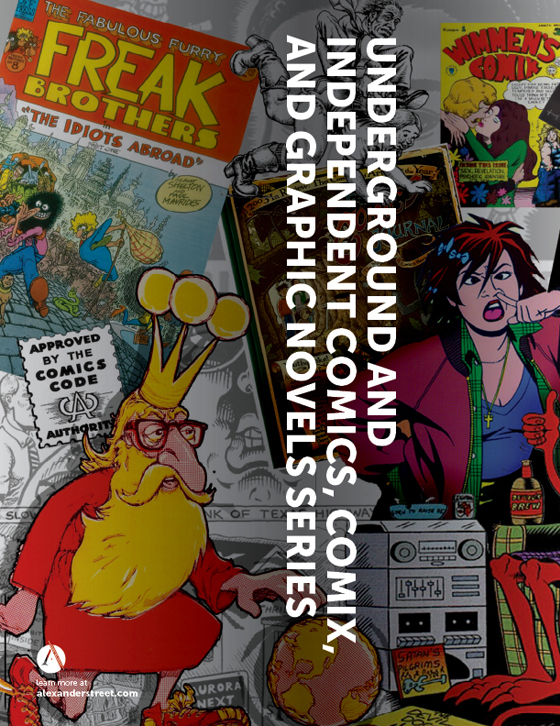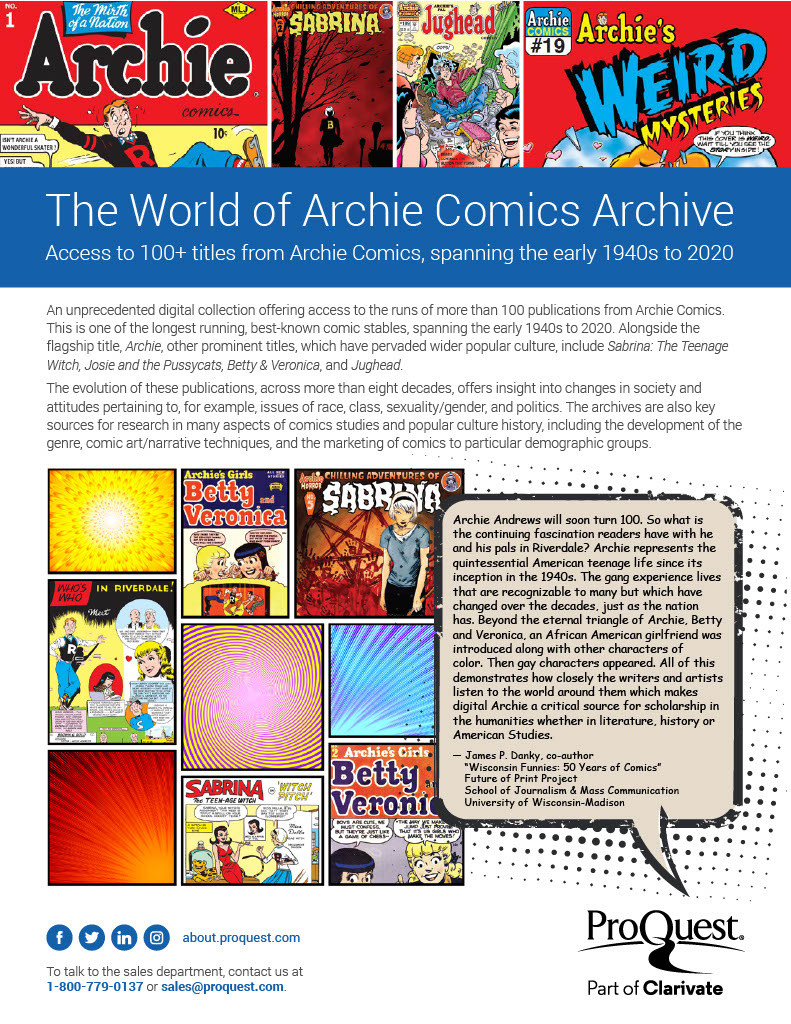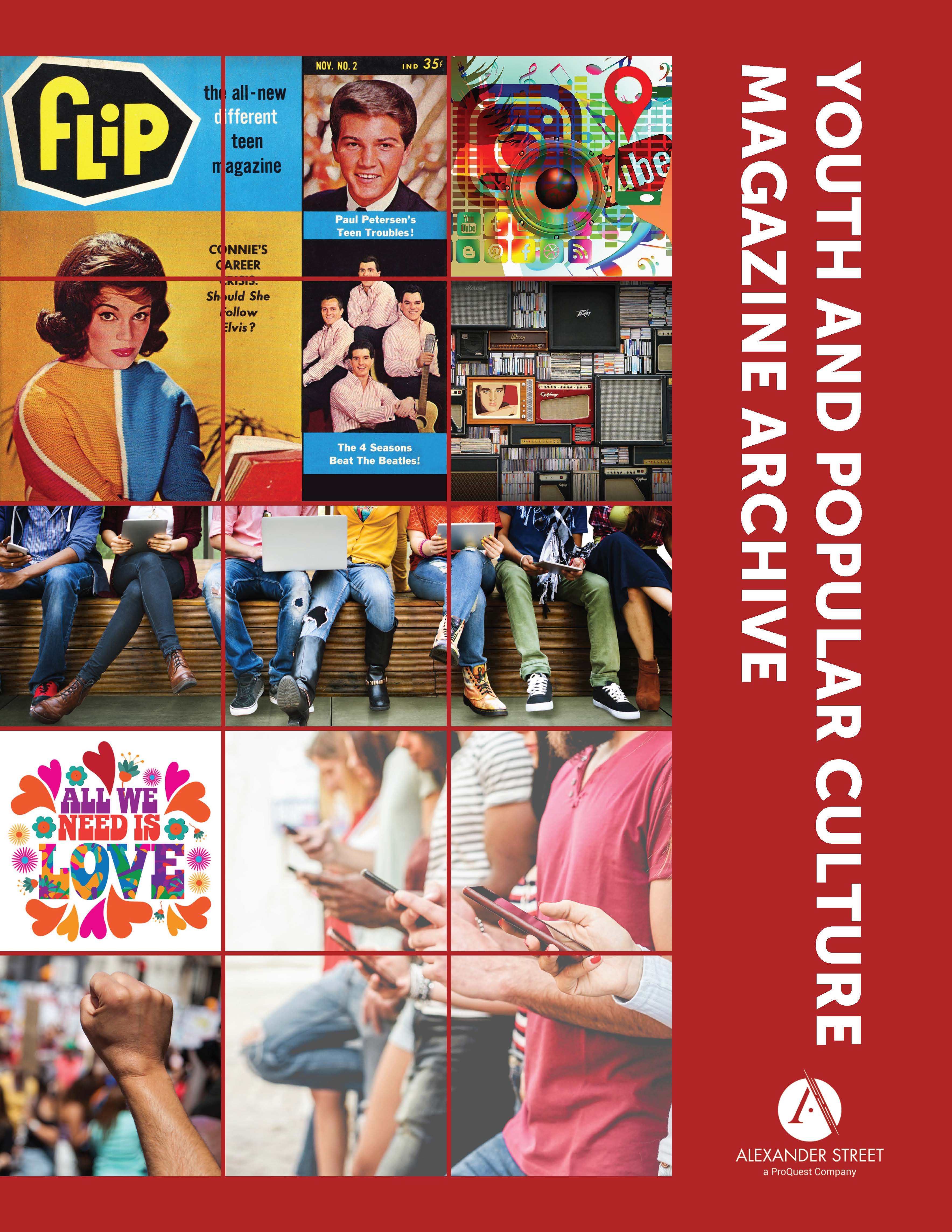
Comics Studies Library
The Comics Studies Library combines over 500,000 pages of dynamic material for comics studies and history. This database spans the breadth of the comic book medium, from early underground comix roots to contemporary graphic novels, providing researchers with invaluable insight into the evolution of the comics medium. With supplementary resources including interviews, commentary, theory, and criticism, the library is designed to foster an understanding of comic book culture and its significance in art, literature, and popular culture.
From the pioneering works of underground comix artists to the groundbreaking creations of modern sequential artists, The Comics Studies Library covers major works from North America and Europe, providing researchers with a comprehensive view of the medium's development. The collection contextualizes these original works with over 25,000 pages of interviews, commentary, theory, and criticism sourced from esteemed journals, books, and magazines, enriching users' understanding and analysis of comic book culture.
The digitized backfiles provide rich visual content and insights into themes such as gender roles, youth culture, the influence of war, graphic design elements, and the portrayal of sexual diversity over the decades. The Comics Studies Library serves not only scholars in graphic design, literature, cultural studies, and art history but also scholars of design, media studies, advertising, communication studies, and journalism — making it a valuable resource to support interdisciplinary research and exploration.
The Comics Studies Library contains:
Underground and Independent Comics, Comix, and Graphic Novels: Volume I
Volume I covers major works from North America and Europe, beginning with the first underground comix from the 1950s and continuing through to modern sequential artists. It incorporates 75,000 pages of material from artists such as Basil Wolverton and Harvey Kurtzman, R. Crumb, Gilbert Shelton, Harvey Pekar, Spain Rodriguez, and Vaughn Bode, and modern masters including Peter Bagge, Kim Deitch, Dave Sim, Dan Clowes, and Los Bros.
The collection contextualizes these original works with 25,000 pages of interviews, commentary, theory, and criticism from journals, books, and magazines, including The Comics Journal. Also included in this collection is The Seduction of the Innocent by Dr. Frederick Wertham—the book that led to one of the largest censorship programs in US history—and the complete transcripts of the senate subcommittee hearings that birthed the Comics Code Authority and, inadvertently, the underground comix movement.
Underground and Independent Comics, Comix, and Graphic Novels: Volume II
The second volume expands on the debut database by offering an additional 100,000 pages of important, rare, and hard-to-find works, scholarly writings, and more.
Volume II adds extensive coverage of the pre-Comics Code era horror, crime, romance, and war comics that fueled the backlash leading to one of the largest censorship campaigns in US history. Selections include works by visionaries such as Alex Toth, Boody Rogers, Fletcher Hanks, Steve Ditko, Joe Kubert, Bill Everett, Joe Simon, and Jack Kirby, along with essential series such as Crime Does Not Pay and Mister Mystery, and many others both famous and infamous.
Volume II also contains tens of thousands of pages of non-mainstream, post-code comics and secondary materials from around the world, including the US, Canada, France, Italy, Spain, England, Sweden, Norway, Australia, Korea, Japan, and more.
Underground and Independent Comics, Comix, and Graphic Novels: Volume III – New!
The third volume provides contemporary primary sources for comic studies research focusing on the Modern Age of comics from 1986 to the present. It examines trends and developments particular to the Modern Age of comics in North America — digital creation tools, innovative shifts in art and narratives, and the rise of independent publishing houses and diverse voices.
The World of Archie Comics Archive
The World of Archie Comics Archive offers access to the runs of more than 100 publications from Archie Comics, one of the longest-running, best-known comic stables, spanning the early 1940s to 2020. Alongside the flagship title, Archie, other prominent titles, which have pervaded wider popular culture, include Sabrina: The Teenage Witch, Josie and the Pussycats, Betty & Veronica, Jughead, and Riverdale. Also included in this collection are some of the earliest superhero comic series originally published in the 1940's and 1950's, from Blue Ribbon Comics, Top-Notch Comics, and Zip Comics marking a pivotal moment in the emergence of the superhero genre within popular culture.
Teaching Power
- Using multiple combinable search fields, users can search comics by material type, coloring, publication date, writer, character, genre, and more. Patrons can explore answers to such questions as:
- Show the comics referenced in the 1954 hearings of the Senate Subcommittee to Investigate Juvenile Delinquency.
- Show me examples of African-American characters in works by Jaime Hernandez.
- Find examples of anti-war sentiment in comics published between 1942 and 1950.
- What were the political, cultural, and economic conditions that led to the rise of the superhero in US comics? Why didn’t European comics follow the same trend?
- Find interviews with Alan Moore from 1985 through 1990.
- Who was the primary audience for Simon and Kirby’s romance comics? How might these stories have differed had they been written and drawn by women?
- Trace the rise of American youth culture in the 1940s-50s issues of Archie








